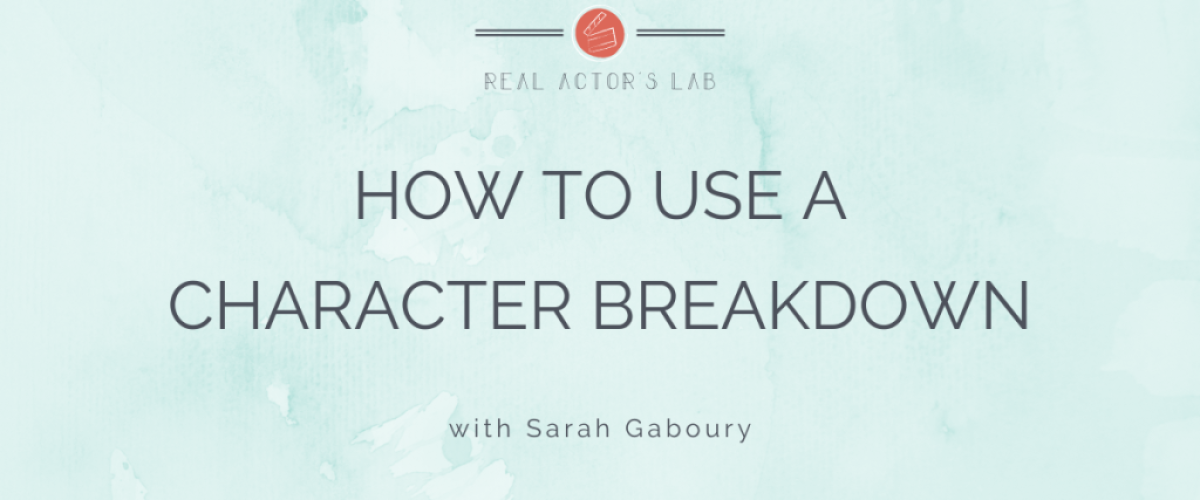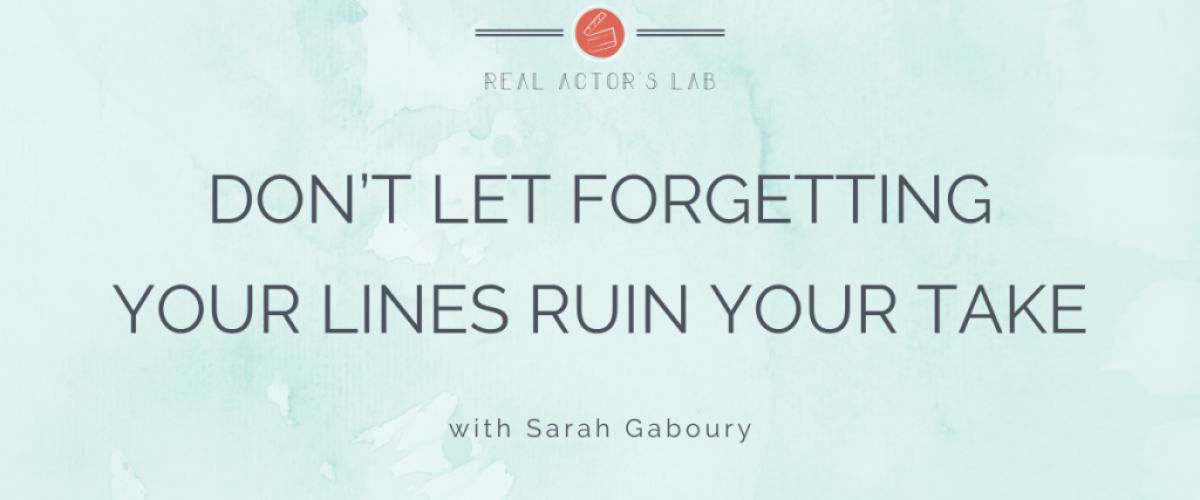Beware of this character breakdown mistake in acting
Here’s the situation: you get an audition and take a look at the character breakdown before you get started. The description gives you a great sense of the role from an audience’s perspective but you see that it’s naturally loaded with adjectives. Here’s the thing: those adjectives cannot be played—they need to be translated. How do you do that?
Adjectives present a dilemma for actors. They are helpful to get a sense of where you’re headed — but again, breakdowns often describe how the role should be perceived. Maybe they want the role to come across as snarky, daring, and confident. Good to know. But…for you the actor, just as in life, you’re not in control of how others perceive you. You do active things to get what you want which is ultimately what affects how you are perceived.
The key to breaking down breakdowns is to translate the language from perception, or result, to action.
It’s not so helpful to think about playing the quality of “daring”. Instead, experiment with some transitive verbs a daring person might have in their action palette. Depending on the scene, maybe they challenge, stun, demand, or provoke. Maybe a confident person flattens, dazzles, or owns. These actions are the choices you make based on the information in the scene, breakdown and what’s in your gut. Actively trying to get the other person in the scene to think, feel or do something will give you nuance and specificity. It will keep the scene active and prevent it from becoming moody. In the end, you may very well convey the adjectives given, but they are simply a jumping off point.
Take a look at this conversation from class where a student had a breakdown with nine adjectives. Using this perspective shift from adjective to action is essential with a breakdown like that!
CLASS CLIP TRANSCRIPTION
Sarah: Let’s look at this character description again. “Innocent, naive, guileless, trusting, simple, and unaffected. Talkative, funny, charming.” That’s a LOT of descriptors! That’s a lot of words! So you sort of take that and then you kind of have to immediately translate some of that, because it’s hard not to play an idea of a person’s descriptions.
Student: Yes, yeah.
Sarah: Right, to translate that into, how does she behave? With her friends, you know, how does she, what does she do to them? Is she…what might her role be? It’s also, you know, there’s that first phase in the audition where…I was just talking about this with somebody in a coaching yesterday…where she kind of like immediately went to try to figure out how to give them what they wanted for that part. And there’s the beginning part which is, I want to get as much of that script analysis and figure out, okay what’s the style of this particular show? What information do I have?
Get that all as deeply as you can and THEN, you kind of have to shift away from, especially for that particular role, they really didn’t give her a lot of information, we just knew the style of the show, so she was really trying to figure out what she thought this part should be. I was like, you get to make up what it is!
You get to decide, you get to take what’s in the script, and then really, it’s such a cliche, but it’s easy to forget and it’s hard to remember, we have to breathe our life into it. And let it come from us and our life and our experience and figure out how do we put our own spin on it? Rather than just trying to shape ourselves into this box that they gave us.
I don’t know if you were doing this, but I know it’s easy to have a description and then try to sort of embody the description, rather than embody what you’re doing to the other people.
Student: YES.




